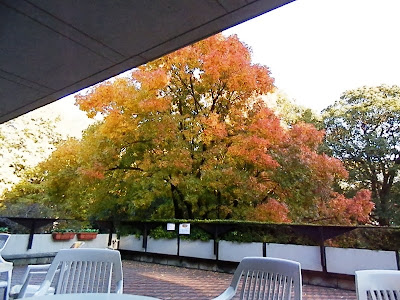A Museum
Jesus after Resurrection
Where did He go?
Of course He went to a road leading to Damascus.
But we can assume that the spirit of God left the body of Jesus after he revived to life again in a tomb. Then as Jesus and His close aids, whom one of His disciple mistook as Moses and Elijah, had discussed on the mountain, Jesus was helped out of the tomb by them. For the time being, He could still act as a demi-god, making an appearance before His disciples sometimes. But finally, the last of the Holy Spirit left the physical entity of Jesus, ascending to Heaven while everybody was watching. Then where did He go as a plain man, like the one who He had been?
This speculation has led to creation of various stories. Some novel reads that Jesus married and had children to live a long life. Other reads that Jesus traveled to as far as India and Tibet.
In one of my theories, Jesus went to Rome. Then Titus Flavius Josephus (37-100) came to the capital of the Roman Empire as he had fought against the Romans during the First Jewish–Roman War, lost the War and defected to the Roman side. Jesus taught Josephus how to write about the War and eventually Antiquities of the Jews.
These two books are too great for us to believe that they were just written by Josephus alone relying on his knowledge and judgment. Somebody must have helped Josephus, and it must have been Jesus as a plain man after Resurrection.
The Jewish War or Judean War (in full Flavius Josephus's Books of the History of the Jewish War against the Romans, Greek), also referred to in English as The Wars of the Jews, is a book written by Josephus, a Jewish historian of the 1st century.
It is a description of Jewish history from the capture of Jerusalem by the Seleucid ruler Antiochus IV Epiphanes in 170 BC to the fall and destruction of Jerusalem in the First Jewish–Roman War in 70 AD. The book was written about 75, originally in Josephus's "paternal tongue", probably Aramaic, though this version has not survived. It was later translated into Greek, probably under the supervision of Josephus himself.
http://en.wikipedia.org/wiki/The_Jewish_War
Antiquities of the Jews, also Judean Antiquities (see Ioudaios) is a twenty-volume historiographical work composed by the Jewish historian Flavius Josephus in the thirteenth year of the reign of Roman emperor Flavius Domitian which was around 93 or 94 AD.[1] Antiquities of the Jews contains an account of history of the Jewish people, written in Greek for Josephus' gentile patrons. In the first ten volumes, Josephus follows the events of the historical books of the Hebrew Bible beginning with the creation of Adam and Eve. The second ten volumes continue the history of the Jewish people beyond the biblical text and up to the Jewish War.These two books had better be regraded as other Bible, since Jesus might have been behind the author Flavius Josephus who could have been a son of Jesus.
http://en.wikipedia.org/wiki/Antiquities_of_the_Jews
*** *** *** ***
Luk 11:24 When the unclean spirit is gone out of a man, he walketh through dry places, seeking rest; and finding none, he saith, I will return unto my house whence I came out.
Luk 11:25 And when he cometh, he findeth it swept and garnished.
Luk 11:26 Then goeth he, and taketh to him seven other spirits more wicked than himself; and they enter in, and dwell there: and the last state of that man is worse than the first.


